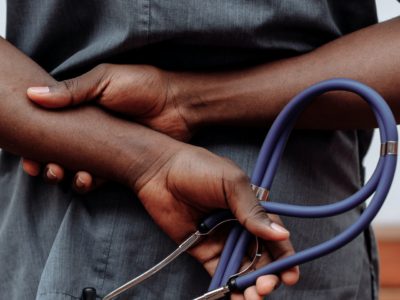Kent Taylor, founder and CEO of the beloved chain restaurant Texas Roadhouse, has died at the age of 65 after a painful struggle with COVID-19. His family says that he took his own life after the coronavirus intensified his tinnitus, or ringing in his ears.
His restaurants are known for their casual vibe where the staff can break out in a hoedown at any minute and there are always empty peanut shells scattered on the floor. Taylor left behind a powerful legacy and a commitment to bring the condition known as tinnitus to an end.
The Texas Roadhouse Spirit
Taylor first came up with the idea for his signature restaurant chain at a bar where he wrote the idea on a cocktail napkin, as the story goes. The first location opened in Clarksville, Indiana in 1993. There are now 610 locations in 49 states.
Taylor reportedly based the theme and style of the restaurant on his hometown of Louisville, Kentucky.
The major of Louisville, Greg Fischer, honored him after his passing on social media, writing, “Kent’s kind and generous spirit was his constant driving force, whether it was quietly helping a friend or building one of America’s great companies in @texasroadhouse. He was a maverick entrepreneur who embodied the values of never giving up and putting others first.”
Taylor spent his life working in various nightclubs and restaurants. Before starting the chain, he went back home to Louisville to work in a Kentucky Fried Chicken, but had dreams of creating his own restaurant. He got his start thanks to former Kentucky Governor John Y. Brown, Jr., who gave him $80,000 for his startup. After the initial partnership fell apart, Taylor later secured money from three separate doctors who all wanted to support his vision.
After a few years, the Texas Roadhouse chain was born. New locations started popping up in Florida and Ohio based on his initial success in Clarksville. Three decades later, it had become one of the most successful culinary chains in the country. Every location is meant to make people feel at home.
He is survived by his two parents, three children, and five grandchildren. The family put out a statement soon after his passing:
“Kent leaves an unmatched legacy as a people-first leader, which is why he often said that Texas Roadhouse was a people company that just happened to serve steaks. He changed the lives of hundreds of millions of employees and guests over the past 28 years. He also impacted hundreds of thousands of people through his generous and often anonymous donations.”
At the onset of the pandemic, Taylor decided to give up his base salary and bonus for the year to support his restaurants’ hourly employees. His act of selflessness was “no surprise to anyone who knew Kent and his strong belief in servant leadership,” the company’s board of directors said in a statement. “His entrepreneurial spirit will live on in the company he built, the projects he supported and the lives he touched,” they added.
Fighting Back Against Tinnitus
Taylor leaves behind another legacy. He spent much of his later years fighting tinnitus. Experts say the coronavirus can make the ringing sensation worse for some people.
According to his family, it’s not clear when Kent contracted COVID-19, but they added he “battled and fought hard like the former track champion that he was, but the suffering that greatly intensified in recent days became unbearable.”
His case may have been considered what’s known as “long COVID”, where patients recover from the disease only to experience painful, troubling side effects for months after their initial symptoms recede.
Near the end of his life, Taylor donated money to a military clinical study aimed at helping service members recover from lasting tinnitus.
A recent study from The University of Manchester and Manchester Biomedical Research Centre estimates that around 7.6% of people infected with COVID-19 experience hearing loss, 14.8% suffer tinnitus, and around 7.2% experience vertigo.
Studies also show that nearly 1 in 5 people that are diagnosed with COVID-19 are also diagnosed with a psychiatric disorder within three months, including anxiety, depression, and insomnia.
Taylor’s family said they were saddened by his decision to end his own life. They also noted, “more than ever the importance of reaching out for help if you or someone you love is suffering.”

















